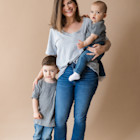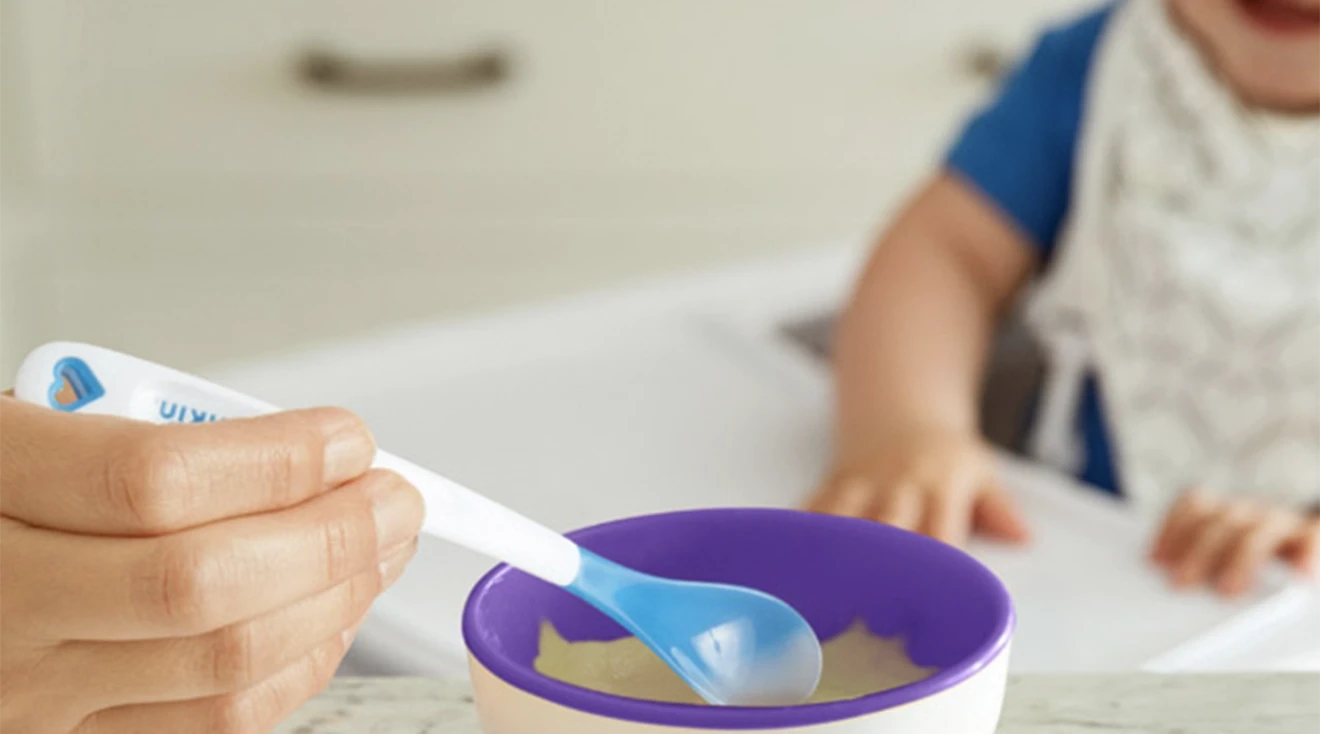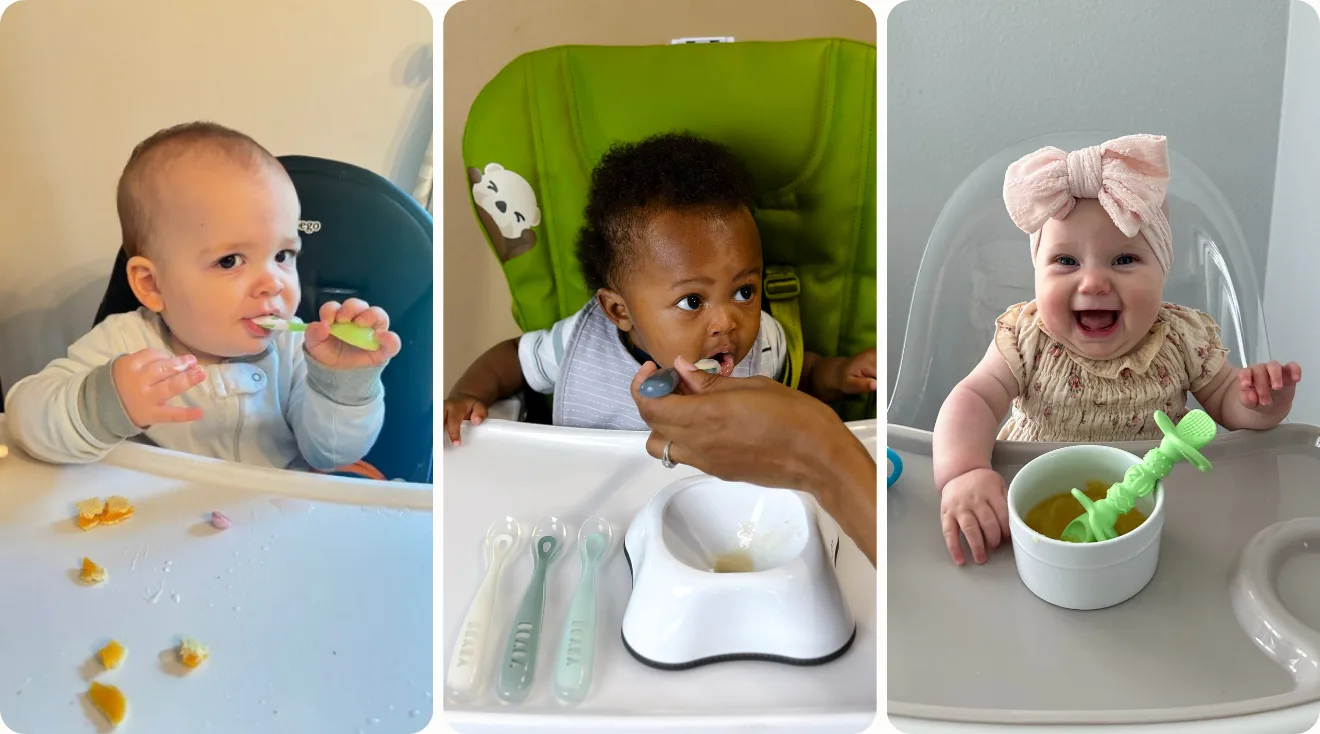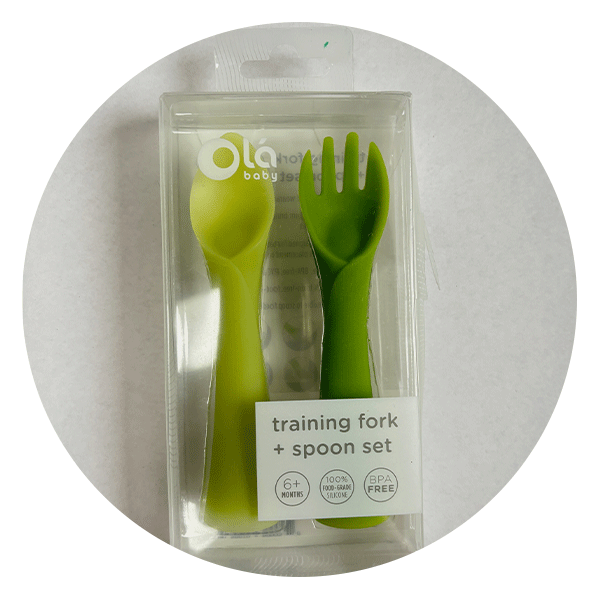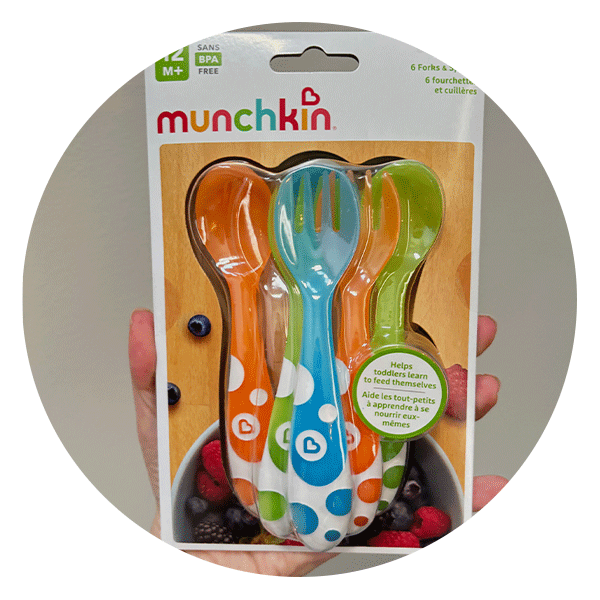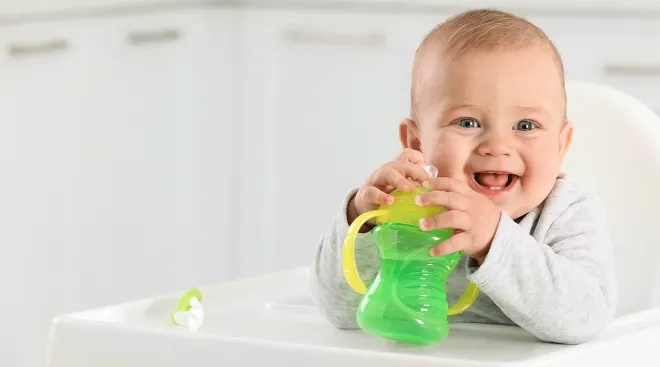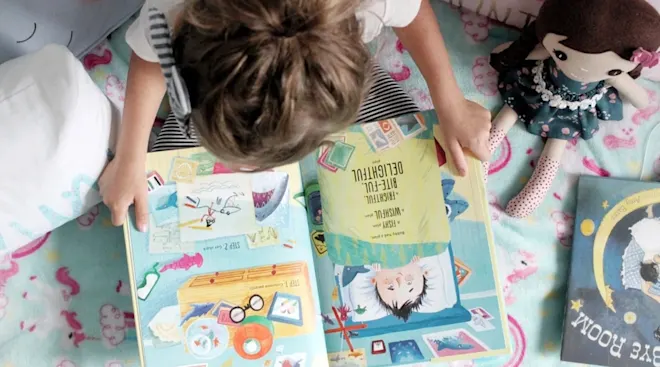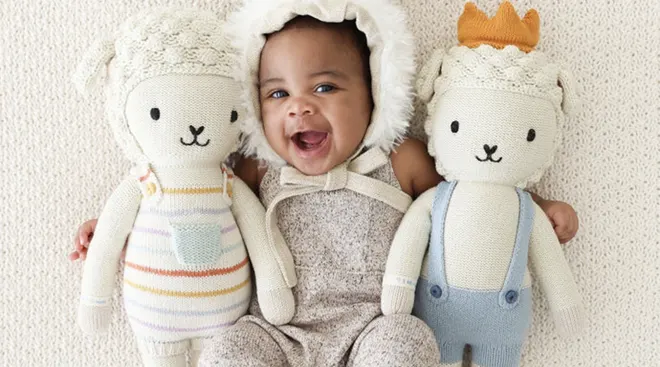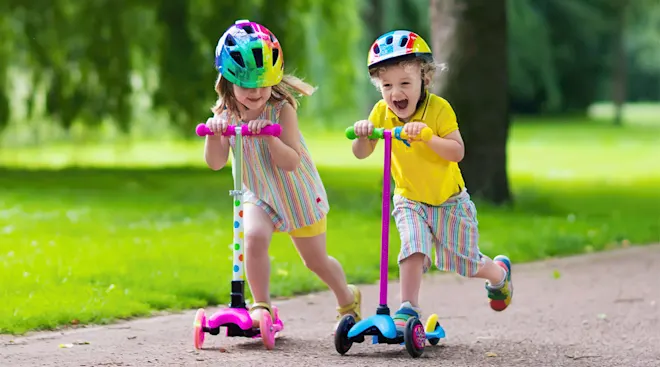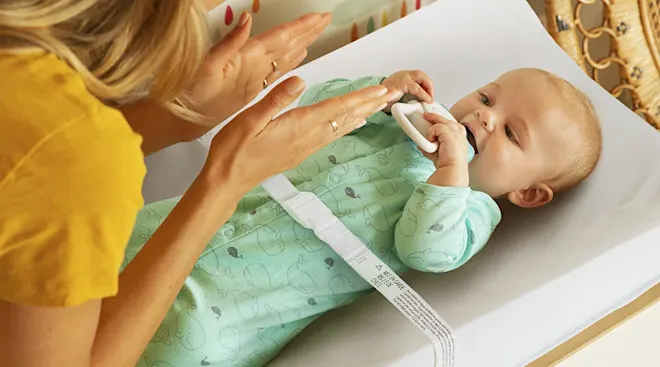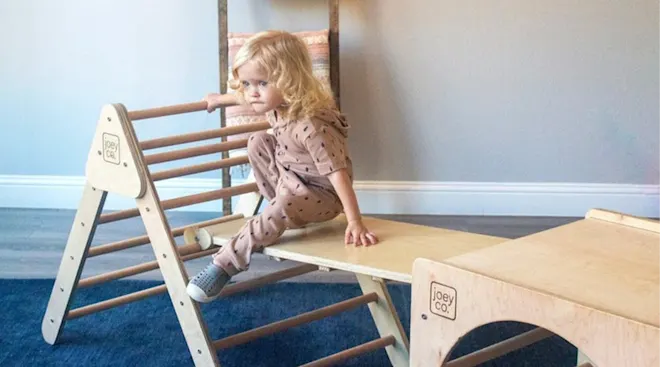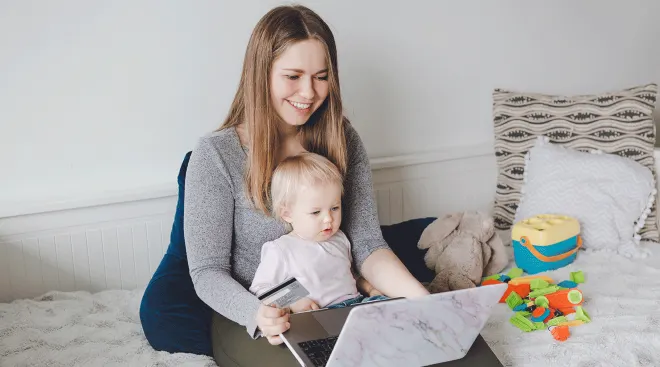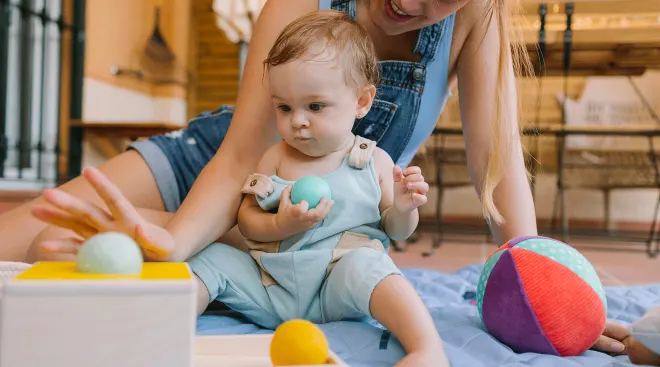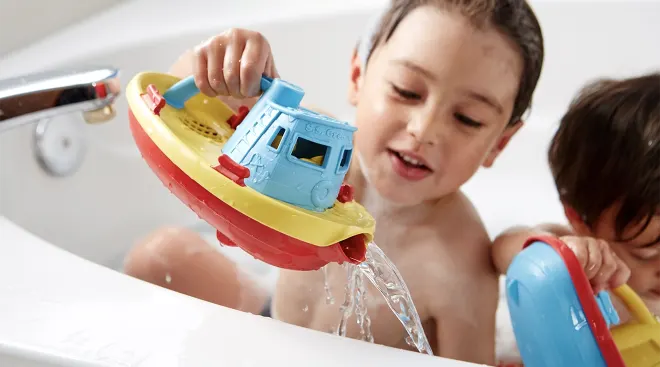The Best Baby Spoons and Forks, Tested by Hungry Children
There’s a lot to digest when you’re figuring out how to feed a newborn baby, but at the end of the day, whether it’s breast milk or formula, it’s still an entirely liquid diet. It’s when baby gets old enough to start introducing solid foods that things really get messy! “Babies can be fed pureed foods with a small spoon at 6 months,” says Kimiyo Harris Williams, MD, a pediatrician at the Children’s Hospital New Orleans—that’s the age when babies can swallow pureed food without choking, according to the CDC.
You’ll want to have baby spoons and training utensils on hand for this delicious new milestone, but not all utensils are created equal. The good news? I’m a mom of two little ones, and along with two other mamas of babies under a year old, I have tested several of the top-rated baby utensils on the market. My 12-month-old is just into self-feeding, and he and I have personally put these baby forks and spoons to the test! Keep reading for everything you need to know about introducing baby utensils, what to look for, and the best baby spoons and forks to shop now.
To help you find the best baby utensils, we researched dozens of options on the market—and then we put them to the test. Here are the steps we took to create this roundup:
- I personally tested seven baby spoons and forks with my junior tester—aka my 12-month-old son.
- Additionally, four utensil sets were sent to independent testers for review. Each product was assessed and received a score out of 10 for following criteria: ease of use, quality, ease of grip, effectiveness, design features and value for money.
- We consulted with a pediatrician to understand what qualities parents should look for in a baby feeding set.
- To understand how these utensils have worked for families, we conducted exhaustive market research, scouring external forums and message boards and reading user reviews to find out what parents across the country looked for in baby spoons and forks.
Editorial integrity is at the heart of everything we publish. Read about how The Bump develops and reviews all articles, including product reviews.
Best first baby spoon
- Easy to hold
- Travel-friendly case
- Soft on baby’s gums
- Our tester noted that the shallow spoon design made it difficult to feed a hungry baby quickly
Designed with those early solid feedings in mind, the WeeSprout Stage 1 Silicone Baby Spoons are perfect for introductory feeding. Our product tester Khadijah, a mom of a six-month-old baby, loved the user-friendly design features, BPA-free silicone material and functionality of these spoons. In fact, the utensil set received a 10 out of 10 rating across all categories, bar effectiveness, which received a 9 point score.
“The grip of the WeeSprout Stage 1 Silicone Baby Spoons was great,” Khadijah reported. “The ergonomic handle made it easy for both me and my little one to hold. I didn’t have to over-extend my hand or wrist while feeding.” Khadijah also noted that the texture of the handle offered a secure grip without slipping. This may sound like a minor feature to call out, but hand and wrist fatigue can make spoon feeding an arduous task. She also loved that the set came in a stylish carry case and that the spoons had a shallow bowl, making the food transfer into her baby’s mouth smooth. With a teething baby, she reported that the soft spoon tips were gentle on her little one’s irritated gums: “The material was gentle, and my baby had no discomfort, which was reassuring.”
Khadijah also remarked upon how easy these spoons were to clean as they fit neatly into the dishwasher. “They didn’t stain when feeding cereal and looked great after washing. I believe these spoons will hold up well over time with repeated washing,” she told us. While these baby spoons performed as well as some of the other comparable sets we tested, they cost a good $10 less!
Material: Silicone | Number of utensils included: 3 | Price per utensil: $4
Our product tester says: “I would definitely recommend the WeeSprout Stage 1 Silicone Baby Spoons. They are affordable, have a super stylish carrying case, and are made from BPA-free silicone, ensuring safety for my baby. The ergonomic design and soft, shallow tip also make feeding easy and gentle on my baby’s gums.”
Best baby spoons for early self-feeding

- Anti-choke guard
- Double-ended design
- Soft, textured silicone
- Some reviewers said the spoons don’t reach the bottom of a baby food jar
- Our tester didn’t like the primary colors
Introducing your baby to self-feeding can be intimidating, but with the right utensils those early days can be a lot of fun! Our product tester Janice used Nuby’s Dipeez Baby Feeding Spoons with her 7-month-old daughter and gave them 10 out of 10 in all testing categories
These baby spoons have two functional ends: one for scooping so that caregivers can help feed baby and one textured end that baby can dip into their food for a taste test. “My baby is learning how to use a spoon, but did well with these,” says Janice, who noted that the “chunky size” was easy for her little one to grip. “My child is ambidextrous and can use the utensils and either hand,” she continued. As her daughter is in the early stages of learning how to self-feed, Janice also used the utensils to spoon-feed her. She said she could hold the spoon at a comfortable angle and mentioned that it was “easy to get their food off the spoon and into her mouth.”
While Janice wished the baby spoons came in more neutral colors to match her personal aesthetic, she liked the BPA-free silicone material. “The material was gentle on her gums and suitable for her to chew on,” she explains. As for the design, our tester said the “anti-gag feature is smart” as her baby likes to gnaw on these utensils. Finally, it’s worth mentioning that these baby spoons are dishwasher safe and easy to clean. According to Janice, “the material has not stained and looks good after washing.”
Material: Silicone | Number of utensils included: 2 | Price per utensil: $4.50
Our product tester says: “My child could easily grip the utensils because of their design. They are a good size and length for her.”
Best baby utensils for teething
- Food-grade silicone
- Chubby handles are easy to grip
- Sensory bumps to stimulate gums
- Not designed for spearing food
- Some babies mistake utensils for a pacifier
Babies usually start cutting teeth between 3 and 6 months old, though the age differs depending on the child. My older son started teething as early as four months, while my youngest didn’t begin until seven months. And during this stage, babies will chew anything they can get their hands on—including cutlery!
That’s why I love these baby utensils that double as a teether. Bumkins Silicone Chewtensils do what their name promises: Provide your baby with an introductory silicone instrument that’s safe for baby to chomp on. The chunky, textured handles are over an inch thick, making it easy for little hands to grasp. And the utensils are safe for teething thanks to the built-in anti-choke guards. Another feature that my baby absolutely loved were the sensory bumps on the back of the spoon. He liked to chew on the little nubbins, which are designed to massage sore gums. Chewtensils are a set I wish I had when my baby was slightly younger (6 to 9 months) to get him used to holding and teething with utensils.
The utensils scored especially high for quality, grip and ease of use. It’s very important to me that a silicone utensil be of high enough quality that it won’t break down easily, and the soft, flexible, food-safe silicone made me confident to feed my baby. While I would never leave him unattended while he ate, I felt safe knowing how soft the tips were. While my son was able to dip and attempt to spear food, I wouldn’t say this was the most effective utensil set he’s tried. With that said, I think these are a great introduction to self-feeding. As far as cleanliness goes, the utensils looked perfect after washing, and it seems they will hold up with extended use. They didn’t stain, even with his beloved sweet potato, which I’ve found typically stains everything.
Material: Silicone | Number of utensils included: 2 | Price per utensil: $7.98
Our product tester says: “The bright color, soft silicone, and chubby short design made it so easy for my little guy to self-feed! What's funny about these is that they look like teethers or toys but the functionality was impressive.”
Best baby utensils for self-feeding
- Great spoon size
- Textured easy-to-grip handle
- Utensil base suctions to the table
- Higher price point
- Some parents feel the utensils are too flexible
Upon first glance at the Olababy Training Fork and Spoon Set, I thought, “these are never going to work!” The utensils seemed too flexible and the spoon looked oddly shaped—But my initial reaction couldn’t have been further from the reality of testing them. Olababy utensils are beautifully designed with function in mind. I was amazed at how well my 12-month-old fed himself (he has hardly any self-feeding experience at this point, other than with his hands). This green-hued set was intuitive for him and scored a 10 out of 10 for ease of use in testing.
The silicone spoons have an indented texture and the material is BPA-free, which is important to me. The manufacturer claims that the fork and spoon are gentle on your baby's gums, which is definitely true. However, the handles were a little wide to chew on and my baby gagged a bit while trying to do so. Other than that issue, the utensils were easy to use, clean, and looked brand new after a few washings.
Now let’s talk about the design of this baby spoon and fork set. I love the green color and the spoon reminded me of a leaf, giving a feeling of natural, organic feeding. The utensils have a tapered handle that’s narrow in the middle and gets progressively wider towards the base. This ergonomic feature looks elegant and actually makes it easier for my son to grip the spoon or fork. I was pleasantly surprised by how well the soft, silicone fork could spear his food. But the winner in this set has to be the spoon. Its unique shape made it so easy to get all of the food off in one mouthful, and unlike many other brands we've tried, no traces of food were left behind. I love that the spoon was shallow enough for my baby to get all the food into his mouth but deep enough to scoop a perfectly-portioned serving.
Material: Silicone | Number of utensils included: 2 | | Price per utensil: $7.99
Our product tester says: “The quality and features warrant the price. I wish these were a little less expensive ($10 or just under); However, I would splurge and repurchase them because my little guy fed so well with them.”
Best baby fork and spoon set

- Sensory bumps prevent gagging
- Fork effectively speared food
- Perfect size for little hands
- Higher price point
- Nylon tips
There are plenty of baby forks and spoons on the market, but ezpz Mini Utensils are the most functional set I’ve used. My 12-month-old baby easily grasped the chubby, non-slip handle and fed himself with both non-flexible utensils, which surprised me as he didn’t have much practice with self-feeding. While the utensils are made from BPA-free silicone, they have a sturdy nylon head, making them strong enough to scoop and pierce food. And, unlike other baby utensils I’ve tested, the fork effectively speared food without being too sharp—and I felt completely confident that my son was safe. It was one of the few baby utensil sets I’ve tried where I felt the fork and spoon were equally functional.
While he did well at feeding himself, I could also comfortably spoon feed him when he needed some help. Both the spoon and fork have sensory bumps and a raised rim, which prevented my son from putting the utensil too far into his mouth and gagging. I truly appreciated this unique feature. Another plus point is how easy these utensils are to clean. They fit into the basket of my dishwasher, although we use the utensils so often that I like to hand wash the set, so that they are always readily available! Though they are a bit pricier, I feel that the quality and value are there—these will last my baby a long time until he’s ready to begin using metal utensils.
Material: Silicone, nylon; Number of utensils included: 2 | Price per utensil: $8.99
Our product tester says: “This set was very effective in feeding my son. I couldn't believe how easily he self-fed with both the fork and spoon.”
Best budget-friendly baby fork and spoon set
- Forks spear food
- Affordable
- Easy grip handle
- Not suitable for teething children
Looking for affordable baby utensils that still get the job done? Of all the baby spoons and forks tested for this article (11 in total) Munchin’s are by far the cheapest at under $1 per utensil! But despite the competitive price, these utensils still have plenty of great features and received a top score for quality, ease of grip and value for money.
The six-piece set includes three spoons and three forks. Brightly colored, these are fun and easy to spot in my silverware drawer and among my other baby-feeding accessories. The curved handles have a grippy white portion, making these forks and spoons an absolute breeze for my son to grip and feed himself. While the texture made it easy for my son to grasp, it was slightly distracting as my son kept flipping the utensils to chew on the softer white part of the handle, which was a bit of a concern as they aren’t teething friendly. And while the thickness was perfect, I think the handles could be slightly shorter, to both improve the functionality and prevent baby from gagging.
The utensils are made from high-quality BPA-free plastic, and while they were pretty rigid, they still had some flexibility for ease of feeding. The forks have rounded prongs for safety but can still spear even the most stubborn pieces of food. I was so impressed by how my son was able to pick up his sweet potato with the fork, and yet because it has a soft plastic tip, it wasn't too sharp for him. Meanwhile, the spoons have a great width and depth that was not too large for my son's mouth, and fed him easily. In particular, the spoon's curve made it incredibly easy for my baby to get all of the food into his mouth. All in all, I found both utensils were very useful and effectively facilitated his meal.
Material: Polypropylene; Number of utensils included: 6 | Price per utensil: $0.70
Our product tester says: “This set is an incredible value! At $4.19 for a six-piece set (3 forks and 3 spoons), I felt the quality and features exceeded the cost. I would definitely spend more than this on forks and spoons for my baby but I'm glad I don't have to! The affordability really puts this product over the edge for me!”
Best toddler silverware

- Builds confidence in eating
- Rounded fork tines
- Ergonomic handle
- Some parents felt the spoon is a little wide
What’s better to entice your toddler to self-feed than silverware that looks like grown-ups? The OXO Tot Fork and Spoon Set is the perfect choice to transition your baby from early feeding utensils to metal ones. I tested the set out with my newly-minted toddler, and although I was initially skeptical, it won me over and received an average 9.5 score out of 10.
There’s so much to be impressed about with this toddler spoon and fork set. Upon first look, I thought my baby would struggle to use these as they look like silverware more suited to a 2-year-old, or even my almost-four-year old. However, as soon as I removed the set from the minimal packaging and felt the stainless steel fork tines, I knew this was more than age-appropriate. While made from metal, the prongs and spoon tip are perfectly rounded, so there was no fear of my little one hurting himself on sharp edges. In fact, I was so impressed with how he handled these himself. My son picked up the spoon and fork immediately and intuitively began to try stabbing and scooping his food. Of all the samples I've tested, this fork did the best job at spearing food. I also appreciated the thick, curved handle, which was equally easy for myself and my son to grip and hold.
My youngest looks up to my four-year-old with everything, and it's such a win for my little guy to have a fork and spoon set that looks like his brother’s yet is developmentally appropriate for him. This set will be a fantastic transition to regular silverware (like mama, dada and big brother) as he grows.
Material: Stainless steel; Number of utensils included: 2:1 fork 1 spoon | Price per utensil: $4.49
Our product tester says: “What impressed me about this set was how the spoon and fork held onto the food in the sometimes bumpy ride from my hand to his mouth. Most sets were more training sets, whereas OXO Tot is more functional. Both utensils were handy! I love that they look like adult silverware, and I think transitioning him from this set to more advanced silverware sets will be easier.”
As mentioned above, most babies can be spoon fed from 6 months old. After that, if you’d like to let baby try to feed themselves using a spoon, just be sure to supervise while they’re experimenting. “Babies can start to use a spoon by themselves at around 10 to 12 months old with supervision,” says Williams.
You certainly don’t have to put the best baby utensils on your registry (the early baby feeding essentials, like bottles, bottle brushes, a nursing pillow and milk storage bags, for example, are much more top of mind), but once baby approaches the age of eating solids, it’s good to have a handful of baby spoons at the ready. You can always add training spoons and toddler utensils for self-feeding to your shopping list when you start nearing the end of the first year.
Of course, flatware doesn’t have to be complicated for “first-time” foodies, but spoons are the tools you’ll want to start with. It’s important to make sure nothing is a choking hazard (i.e. too long or with sharp edges) or too cumbersome for baby if they begin wielding utensils on their own—something that will eventually become the best part of mealtime adventures!
Remember to let your baby take the lead. Not only will the learning and exploration process of playing with a spoon or fork, dipping it in their food and bringing it to their mouth to taste foster greater oral-motor skill development, but it’ll also help baby become a pluckier (read: not pickier!) eater and less inclined to push food away.
There are many fork and spoon options on the market that are made of soft, flexible silicone, allowing you to expose your little one to feeding utensils as early as six months! Spoons and forks with short, chubby handles are much simpler for tiny grabbers to maneuver. When scouting out the spoons you’ll feed your infant with and then hand over to them for self-feeding, be sure to keep these attributes in mind:
-
Ergonomic design for both parents and baby. When you’re doing the feeding, you’ll want a spoon that feels nice in your hand, with a long and slender handle and a small bowl, which Williams says allows the food to reach baby without parents having to overextend their arm or wrist. When baby is doing the feeding, you’ll want a smaller and chunkier spoon that’s easy for them to grasp and lightweight enough to hold.
-
Soft, gentle gnaw construction. Babies often start solids around the same time or just after they start teething, so they’ll need a spoon or fork that’s gentle on tender gums. In fact, many of the best baby spoons have dual functionality as teethers. Newer metal forks and spoons work for older eaters. My 12-month-old did very well with a metal fork and spoon that had smooth, curved edges.
-
Easy cleaning. If you feel like you’re constantly running out of spoons and forks for yourself, imagine how frustrating it is when you throw infant and toddler utensils into the mix. That’s why finding dishwasher-safe and plastic- and BPA-free utensils is key.
-
Bonuses to chew on. Feeding spoons shouldn’t be too complicated, but some spoons are designed with special features to make them safer for baby and less stressful for parents. We love options with choking guards, sensory bumps and shorter neck designs that mitigate the risks of baby gagging on their food.
About the writer:
Christine Carpenter is a storyteller from New York. She approaches her craft with the intention of making women feel less alone in motherhood. Carpenter’s favorite job is being a mama of two little boys: her toddler, Cole, and baby, Rylan. With over a decade of experience in the fashion accessories industry, she has a rich professional background in Product Development and a full-blown obsession with products that make life easier and more fun! Carpenter has an eye for quality and experience managing all steps of the product supply chain from inception to delivery. She has written several product testing articles and personal essays for The Bump. Her writing is also published in Motherscope, The Kindred Voice and Mantra Wellness, among others.
Interested in becoming a product tester for The Bump? Head here to apply.
Plus, more from The Bump:
Kimiyo Harris Williams, MD, is a pediatrician at the Children’s Hospital New Orleans. She is board certified by the American Board of Pediatrics and is a Fellow of the American Academy of Pediatrics, and has practiced pediatric medicine for over 20 years.
Centers for Disease Control, Fingers, Spoons, Forks, and Cups, April 2021
Navigate forward to interact with the calendar and select a date. Press the question mark key to get the keyboard shortcuts for changing dates.
































